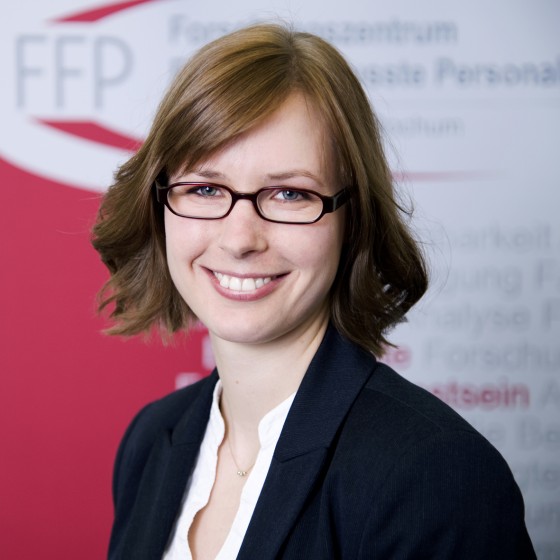
Much already achieved ‒ but still much more to do
One thing that cannot escape anyone’s notice is how much has been achieved over the past few years in balancing careers and family life. This can be seen, for example, in the increase in childcare facilities. Some time ago it was difficult for mothers with small children in particular to go out to work – unless the extended family (mostly in the shape of a grandmother) helped out with looking after the children. Nowadays many employers – including Münster University – make life easier for their staff by helping them to find places at childcare facilities, for example, or by running such facilities themselves. In everyday life, though, one thing becomes apparent again and again: the balancing act between career and family life is not that easy – either for staff or for employers. Here are two examples of the barriers that still have to be overcome:
First example: childcare. Since the legal entitlement to childcare for one-year-old children was introduced in 2013, everything has been simple – at least in theory. In practice, however, it is clear where the problems are. Many facilities and daycare mothers (or fathers) only offer – expensive – 45-hours-a-week places for children under three years of age. In some facilities a childminding service offering 35 hours per week means that the children have to be collected for the lunchtime period. Often this cannot be squared with the demands of working life. But things are not made any easier for employers either. If they want to help their staff with childcare, they first have to decide on a suitable model which takes account of the company’s requirements. Should it be in-company childcare facilities, large daycare centres or “just” support in finding daycare providers? In-company childcare facilities are regarded as the best possible option. On the one hand, they are a good advertisement for the company. On the other hand, however, the legal stipulations, the administration involved and the financial insecurity make many an employer stop and think first. This becomes clearer if we take a look at the costs for in-company childcare facilities in North Rhine-Westphalia, as an example, where a certain percentage of the places have to be made available to the public – in other words, not taken up by children of the company’s staff. Otherwise no funding will be forthcoming from the local authority. The actual prospect of any public money depends, however, on local authority requirements planning. If requirements are deemed to be covered, there will be no subsidies from the local authority. On the other hand, this then means that companies which do not receive any funding are also free to decide on their acceptance criteria, on various weekly hours-based models, or on opening times.

So what is the solution? It is quite simple – at least, in theory. It is communication. In practice it is a real challenge – because everyone is called upon to make a contribution. Employers must reach out to their staff and managers and ask them what they consider to be helpful for their everyday lives – and where they see room for improvement. At the same time, employers must not lose sight of staff who do not (as yet) have any family obligations. It is also up to staff to speak up and say where the problems lie – and make constructive proposals for improvement. And both sides – staff and employers – must pass on their practical experience to the decision-makers in the political and administrative fields.
Dr. Regina Ahrens is the business manager at the Research Centre for Family-Friendly HR Policies at Münster University. She will be taking part as a speaker in the conference entitled "Civic Society and Welfare State: Actors, Strategies and Policy Areas in Transition" organised by the Institute of Political Science and the Akademie Franz Hitze Haus and taking place on November 23 to 25.

What childcare facilities are available at Münster University?
Münster University has daycare facilities – based on two models – available for the children of its staff. On the one hand, we offer nine places in the large "Zauberschloss" ("Magic Castle") daycare centre, and, on the other, we have acquired the rights to 14 places in three other daycare facilities. The organizations supporting this are the Studierendenwerk (Student Services Association) and the Protestant Church. In addition, the Family Services Agency organizes holiday programmes when school holidays and lecture periods clash. We also have a support service for when parents are away at conferences or workshops, as well as a babysitting service.
How great is the demand for your services?
Our services are very popular. There is less demand for the service we offer during conferences or workshops than for other services because we only started it this year.
What challenges does the University face as regards childcare?
Given that the local authorities have their greatest requirements in the under-threes age group, the University has concentrated on creating childcare options for precisely these children. The situation is particularly difficult for people who have moved to Münster and first have to familiarize themselves with the way things are organized in the city. If staff come from abroad, they often don’t have any opportunity to organize childcare here locally. As daycare facilities are available to the greatest extent at the beginning of the school year, i.e. in August, any staff who start their new job (or resume work) during the year have long periods when they cannot plan with any certainty. It’s in situations like this that support from the Family Services Agency is particularly sought after.
The article and the interview were published in the university newspaper "wissen|leben" Nr. 7, 16. November 2016.
Translated from German by Ken Ashton
